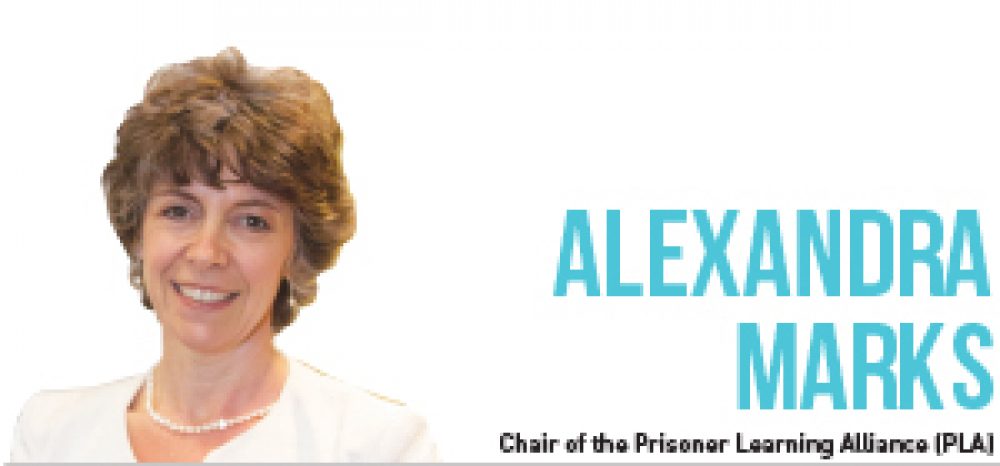Prison learning practitioners attended a conference organised by the Prisoner Learning Alliance (PLA) last month. Alexandra Marks outlines the FE and skills sector concerns that emerged.
Ofsted Inspector Stephen Miller, addressing a conference of 200 delegates including prison education professionals and managers, highlighted many challenges to those teaching in prisons — classes fluctuating as prisoners are released or transferred, learners possessing widely differing and complex needs, and many prison learners having been let down by the school system.
The conference, organised by the Prisoner Learning Alliance (PLA) to improve policy and practice, took place at Open University’s Milton Keynes campus on April 25.
Ofsted’s most recent annual report revealed that prisons came bottom in the whole FE and skills sector. More than half (58 per cent) of prisons Ofsted had inspected in 2012/13 were graded inadequate or requires improvement in terms of leadership and management.
This is hugely disappointing when we know that enabling prisoners to learn reduces reoffending by more than a quarter, according to new research on Prisoners Education Trust’s (PET) work by the Ministry of Justice.
When the cost of crime committed by ex-offenders is up to £13bn per year (equivalent to hosting the London Olympics annually), it is vital we do something about this.
PLA’s vision is that learning should be at the heart of every prison’s approach to rehabilitation.
We want to support teachers and encourage managers, governors and policy-makers to recognise the value of a wide range of learning opportunities.
Our conference presented discussions, workshops and three films of good-practice in action.
One of the key inadequacies troubling Ofsted is the focus on lower level qualifications in prisons, rather than enabling learners to progress beyond level two. We agree
The conference focused on the themes of PLA’s report, Smart Rehabilitation, setting out a blueprint for prison learning that is value–driven, outcome-focused and joined-up.
We were pleased to hear Mr Miller announce that this May, inspectors will begin a ‘support and challenge’ package for the 30 prisons rated as inadequate or requires improvement last year to help them move at least to good.
One of the key inadequacies troubling Ofsted is the focus on lower level qualifications in prisons, rather than enabling learners to progress beyond level two. We agree.
Basic understanding of maths and English is clearly essential, but once a prison learner is beginning to achieve and overcome his or her pre-associated fears of the classroom, we must encourage them with FE opportunities.
Ofsted has repeatedly said it wants prisons to have ‘the best teachers, the best managers and the best advisers to improve the quality of teaching and learning in prison. In February this year, a report by the University and College Union (UCU) found prison teachers weren’t getting enough support to do their jobs.
At the conference, prison tutor Ros Foggin, who has had a varied and extensive career working in schools and FE colleges described herself ‘the naked teacher’ with few resources to cover herself.
Often, she found herself the main, sometimes the only, resource. Trying to engage a challenging class for three hours at a time, without access even to a photocopier let alone other ICT tools, left her feeling adrift from teachers in the rest of the FE community.
Ros told delegates her three wishes for herself and colleagues; first, improved staff development opportunities; secondly, access to secure e-learning; and thirdly, a more enriched and holistic curriculum.
The idea of using informal support mechanisms resonated with other teaching staff at the event. During a workshop on developing excellence in prison teaching, a group of tutors discussed the importance of mentoring and debated the lack of formal teacher training for working in prisons.
PLA strongly endorses the need for improved resources and continuous professional development (CPD) in prison teaching.
After all, it is usually the belief a teacher places in a student that makes all the difference.
Alexandra Marks, chair of the Prisoner Learning Alliance (PLA)



Your thoughts